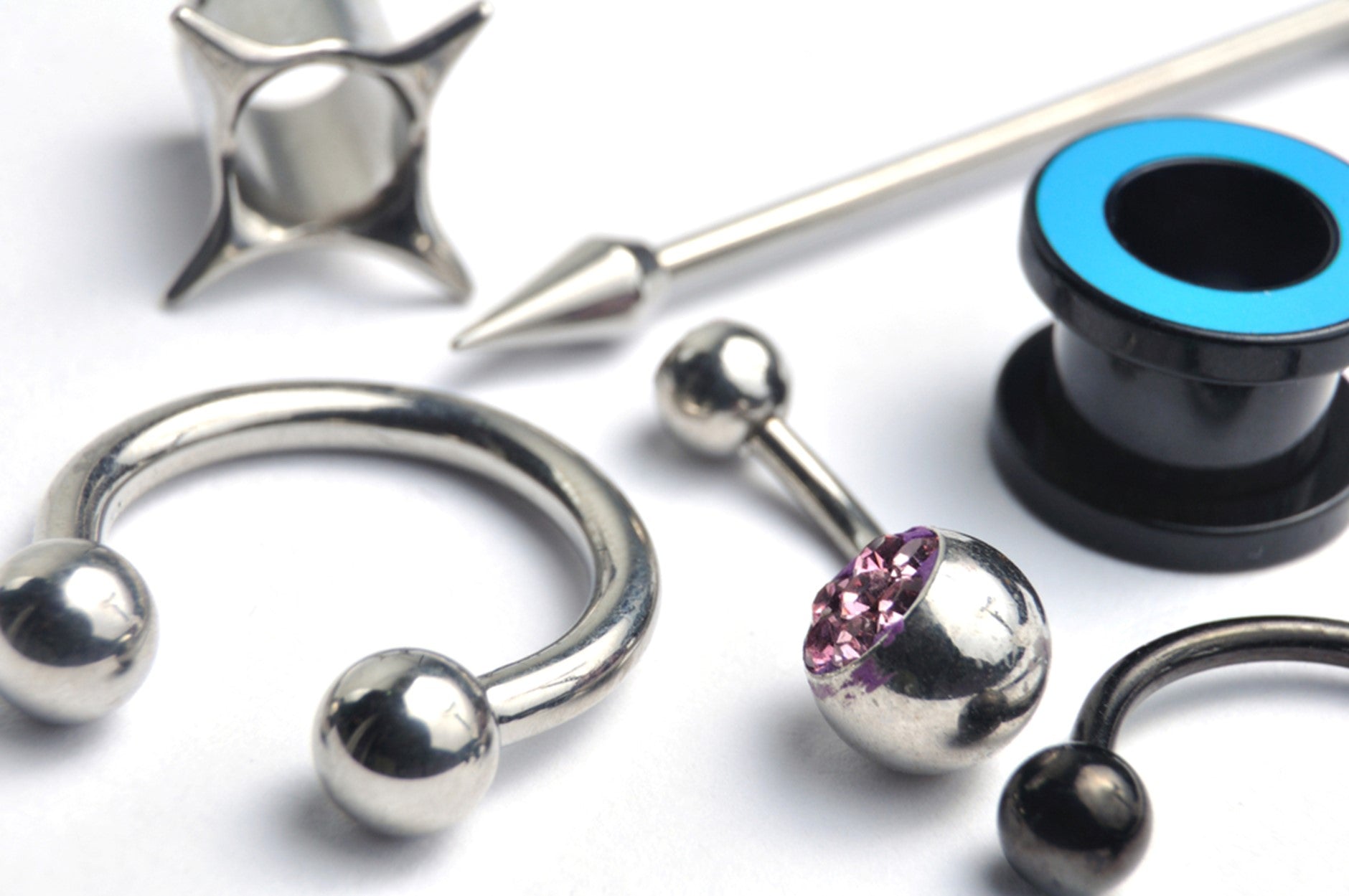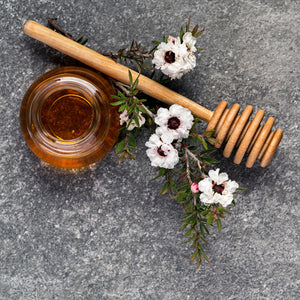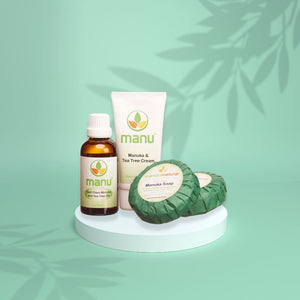
Why you should take piercings seriously and what to use to prevent infection
A hybrid Tea Tree Oil For Piercings
The answer you are looking for is YES!
You certainly can use tea tree oil for piercings. You can use it for piercing bumps, cuts, redness… You can look at it as a piercing healing oil and carry it in your piercing kit.
So, you had your new piercing? It looks sexy and really upgrades your appearance.
Everything would be great except…trying to find a solution for that nasty, infection-like bump.
Does tea tree oil help piercings heal faster?
Here is the average time in which care is needed for the wound to heal after piercing:
- Ear (4-6 weeks
• Cartilaginous fringe of the ear (8-12 weeks)
• Tragus (8-12 weeks)
• Nostrils (4-6 weeks)
• Septum / nasal septum / (6-8 weeks)
• Eyebrows 6-8 weeks)
• Nasal root (6-10 weeks)
• Outer side of labret, lip, and cheek piercing (6-8 weeks)
Yes. Tea tree oil helps piercing heal faster.
In addition to preventing infection in cuts and abrasions, tea tree oil may also encourage faster wound healing. Research has shown that it helps reduce inflammation by triggering the activity of white blood cells which are instrumental for a successful recovery process.
There is one thing that you can do first.
Put some manuka oil on the place where the skin is pierced. You can do it on the first day.
Manuka honey will dry out any potential invaders like bacteria and fungi. Meantime, it will keep your wound moist for new skin to grow. On open wounds, it acts as a part of the food for new ‘baby’ skin.
Although extraordinary for any piercing bumps and skin after effect, don’t put tea tree oil immediately on the wound.
It may cause redness and burning.
Let it heal naturally for a couple of days. And when and if you see a bump is about to form, cut it in the root with tea tree oil.
Tea tree oil application for piercings is a natural, relatively quick solution, and it doesn’t leave any scars – unless you pick it all the time.
The Australian Tea Tree Oil is the perfect way to help you recover from all sorts of piercings. This unique oil can be applied directly to an infected area.
But adding a few drops into your saline solution will usually do wonders in speeding up healing time!
All in all, when it comes to topical application, we can freely say that tea tree oil for piercing is a way to go.
Why is that?
The primary and responsible active ingredients for its antibacterial properties are terpenes. They are organic substances found in some plants, mostly in evergreens.
The terpene hydrocarbon stands out in particular here. It can penetrate through the pores and membranes of the cell membrane. From there, it applies its anti-inflammatory magic to relieve you from redness, itchiness, inflammation.
Therefore, narrowing down the bump around the piercing.
Why should you be using a natural piercing healing oil instead of a chemical one?
We are stating the obvious here, but…
Piercing parlors generally recommend numbing cream for piercings, Hydrocortisone, or saline solution like NeilMed.
You should not use ointment of medical type if you are hypersensitive to any of the preparation components. Also, they are not advised during pregnancy and breastfeeding.
Besides, if applied in excessive amounts, that kind of cream does not allow the skin to breathe. Due to its composition, antibacterial creams may prevent oxygen from reaching the wound.
To explain this further, we will use notes from one of the manufacturers:
“Avoid prolonged or frequent application of the ointment to avoid hypersensitivity at the application site. If the symptoms do not subside within seven days or if a new infection occurs, stop taking medicine.”
Do you know where your bump will be in 7 days with tea tree oil? Gone!
Well, not entirely, but you should see some improvements in 3 days.
We are leaving one or two things under the radar here.
The best way to ensure that your piercing heals as soon as possible is to keep your body clean. While your body is trying to recover, you need to take care of it yourself.
A healthy diet, regular sleep, and moderation in alcoholic beverages during the piercing healing are of great importance. (yes, it is true)
Also, taking multiple vitamins every day helps heal piercings.
Zinc and vitamin C are essential minerals that help regulate every phase of the wound healing process. They not only repair membranes but also keep oxidative stress at bay by fighting inflammation and immune defense cells in our body while tissue re-epithelialization takes place.
All this before angiogenesis or fibrosis/scar formation has even started!
Manuka honey is a rich source of amino acids, B-vitamins, calcium, copper, iron, magnesium, potassium, sodium, C-vitamin, and zinc.
The benefits of using tea tree oil for piercings
Tea Tree Oil provides anti-inflammatory properties that can help reduce irritation. All that while minimizing infection during the healing process or even long-term use to prevent future problems!
Simple and natural alternative to various piercing creams. It can help heal wounds, reduce pain and inflammation by acting as an antimicrobial agent that combats multiple bacteria. (1)
ease up redness and irritation around the piercing
shrink papules, pimples, and other bumps
prevent keloids and other scar tissue from forming
prevent fungal infection
While tea tree oil can have many benefits for the skin, it is not meant to be ingested. So forget to use it on tongue piercing.
A hybrid Tea Tree Oil For Piercings
We at Manuka Natural like to think of us as inventors and general helpers. For us, good is never good enough. That is why we mixed the two most potent essential oils in the world in one bottle.
Manuka oil 10% and tea tree oil 5% for your healing pleasure.
Manuka oil contains unique beta-triketone compounds, which enhance the bactericidal potential.
And recently, it is coming to light the strong antimicrobial properties of manuka essential oil. Its β-Triketones have demonstrated strong antibacterial action against gram-positive bacteria.
This is a stronger action than tea tree has and much more potent than alcohol.
How to dilute tea tree oil for piercings?
This tea tree/manuka oil mixture you don’t have to dilute.
The good thing here is that you don’t have to prepare a mixture with aloe vera, coconut oil, or any other transfer ingredient.
We’ve got a perfect mixture of Manuka/tea tree oil for piercing aftercare.
Manuka Oil and Tea Tree Oil hybrid solution has been formulated to combat resistant infestations that haven’t responded to conventional treatments.
They are also effective in sterilizing cuts, scratches, or other medical issues for general antiseptic use.
When treating piercing conditions with this product, it’s essential to apply it topically and soak the entire area.
The Cawthron Institute in Nelson has conducted extensive testing of East Cape manuka oil against many human pathogens and concluded that this particular type is an effective antimicrobial. A recent study published by the University of Otago’s Department for Microbiology found similar results, with its findings suggesting there could be skin benefits from using manuka oil.
Manuka oil is also:
20 – 30 times more active than Australian tea tree oil against gram-positive bacteria
Several times more effective against strains of fungi,
Effective against gram-negative bacteria and viruses.
How do you apply tea tree oil to a piercing?
Piercing bumps are caused by many different things. Sometimes you might get them because of allergies, genetics, or just bad luck!
They will go away without treatment, but it will take a lot of time. A time that you don’t have because you have to be beautiful right away.
WHAT IS NORMAL AFTER ANY PIERCING?
Bleeding, bruising, redness, and swelling are common with piercings.
However, these are not indicators of any complications. Reducing the use of alcohol, aspirin, and caffeine is a good start. Mild tingling may be present for the first few days and itching for longer during the healing process.
The appearance of fluid that contains blood plasma, lymph, and dead cells is entirely normal. It is a bright white-yellow liquid that creates scabs on the jewelry at the entrance and exit of the piercing.
This is an indicator that the piercing is slowly healing.
Later, the piercing can secrete a white liquid with an unpleasant odor – sebum, which shows that the piercing heals.
Tea tree oil for piercings. Handle with care and persistence
1.Be aware to first wash your hands thoroughly with antibacterial soap and warm water before cleaning. NEVER touch the piercing with dirty hands, as the piercing can become infected. (You can use Manuka soap which is made with manuka oil).
2. Prepare a piercing for cleaning by soaking in warm water. REMOVE ALL CRUSTS using warm water and gauze or cotton wool – NO nails.
3. Soap the area around the piercing and the jewelry with this soap. Do this gently, rotating the jewelry and pulling it back and forth a few times so that the soap enters the piercing. Let the soap work for a minute or two. Rinse the soap well with running water, moving the jewellery in the same way as before.
Gently dry the piercing by pressing with a paper towel (do not use an ordinary towel as it may contain bacteria).
4. After that, you can soak a piece of absorbent cotton with tea manuka/tree oil and gently tackle the piercing place.
5. It would be best to clean your piercing once or twice a day, every day during the healing period. It is best to clean it during the shower. No more than twice a day because it can irritate your piercing.
WHAT NOT TO DO?
Do not use alcohol, hydrogen, and iodine because they are too strong and can interfere with healing.
Do not clean the piercing TOO much, and do not use DIFFERENT soaps, as this can irritate the piercing!
Avoid oral contact and contact with other body fluids in the vicinity and at the piercing during healing.
Avoid swimming in pools, lakes, baths because the water contains a lot of bacteria.
Should I go with a ring or medical earrings?
When it comes to penetration of the septum and nostrils, the main question is whether to put a medical, small earring, or a ring?
There are several different approaches to this topic, and each piercer has his theory. For example, some piercers will refuse to put the ring immediately after, and the reasons for that are justified.
When a piercing is placed, the body’s natural reaction is to reject it and tighten around the earring. However, a nose piercing heals very quickly due to the mucous membrane inside the nose.
That is why the shape of the earring is important. If the first piece of jewellery is a ring, it can easily happen that the skin does not tighten appropriately due to frequent movements and the specific shape.
Piercing’s aftercare
Post-piercing care can last for a minimum of two months and even up to a year.
For the navel, it is necessary 6 months. It needs regular maintenance of 2 times a day.
Please do not move the jewellery dry, or pull it with unwashed hands or play with it. Also, the piercing must not freeze or overheat. So when it is winter, protect it with cotton clothes, and in summer, it must not be directly in the sun or solarium.
What to expect if you do decide to try manuka/tea tree oil for piercings?
You don’t have to dilute it.
Yes, it may cause a slight burning feeling but nothing crazy. The one thing that is for sure is that it will help reduce the size of the bump.
Soon enough, the piercing bump will go away completely.
Also, if you’re serious about healing the piercing bump, start getting familiar with the smell.
It has strong eucalyptus/earthy smell.
In the end …
Piercings often create skin abnormalities, especially if your organism is burdened with keloids. So try not to touch or twist the piercing. Do not turn the ring, scratch, and be careful not to pull the jewellery when changing clothes.
Now I sound like your mother who already told you not to do it but…
Maintain it with manuka/tea tree oil and clean it regularly, but don’t overdo it. Allow the skin to accept a foreign body.
Enjoy the new decoration and admire your unique new look!
ORIGINALLY PUBLISHED on blog.manukanatural.com



Leave a comment